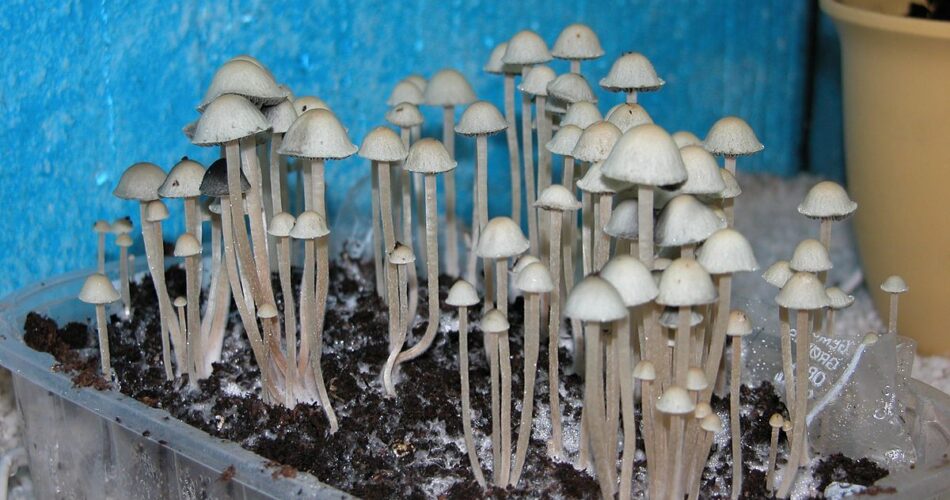Mushrooms are a source of great mystery and fascination for many people. One of the least common and potent species of mushrooms is Panaeolus tropicalis. Here are some facts about this fungus.
Panaeolus Tropicalis: Appearance
The fruit body of this mushroom typically consists of a convex, clay colored cap with a diameter of 1.5 (0.6 inches) to 2 cm (0.7 inches). The cap is often smooth and yellowish at the center. When it’s bruised, it becomes blue. The gills of Panaeolus tropicalis are delicate and close together, and they are grayish with black spots. The stipe (stalk) is 5 to 12 cm (1.9 to 4.7 inches) long and black in color towards the base. It is typically equal, although it may be swollen at the base. The spores can be black or dark violet.
Panaeolus Tropicalis: Habitat and Distribution
Panaeolus Tropicalis is a variety of mushroom that is commonly found in tropical and subtropical regions. The mushrooms are typically found growing on dung. They can be found in Cambodia, Central Africa, Hawaii, Mexico, Tanzania, Japan, Central Africa and Florida. They prefer hot and humid climates.
Panaeolus Tropicalis: Psychoactive Compounds
Panaeolus tropicalis is a species of fungi that contains psychoactive compounds. These compounds can cause hallucinations and altered states of consciousness. The main psychoactive compound in P. tropicalis is psilocybin, which is also found in other species of fungi, such as Psilocybe cubensis. Panaeolus tropicalis can cause powerful hallucinations, and it is important to be aware of the risks before consumption.
Panaeolus Tropicalis: Potency
Panaeolus tropicalis is a potent psychedelic mushroom that is indigenous to warm, humid climates. It contains high levels of psilocybin and psilocin, making it one of the most powerful naturally occurring psychedelics. The effects of P. tropicalis are similar to those of other psychedelics, including enhanced visual and auditory experiences, feelings of euphoria and profound spiritual insights. Although they are not as common as other types of magic mushrooms, they are considered potent and harder to cultivate, therefore they are not commonly found.
Similar Posts:
- Panaeolus Fimicola: Uncommon Mushroom Species
- Panaeolus Cambodginiensis: Magic Mushrooms Species
- Panaeolus Cyanescens AKA Copelandia Cyanescens: Magic Mushroom
- Panaeolus Bisporus (Copelandia Bisporus). All About This Mushroom Species
- Conocybe Siligineoides: Mushrooms Species From Mexico
- Types of Magic Mushrooms – Psychedelic Effects, Potency, Psilocybin Content, Characteristics, and More
- Psilocybe Fimetaria: All You Should Know About This Magic Mushrooms Species





